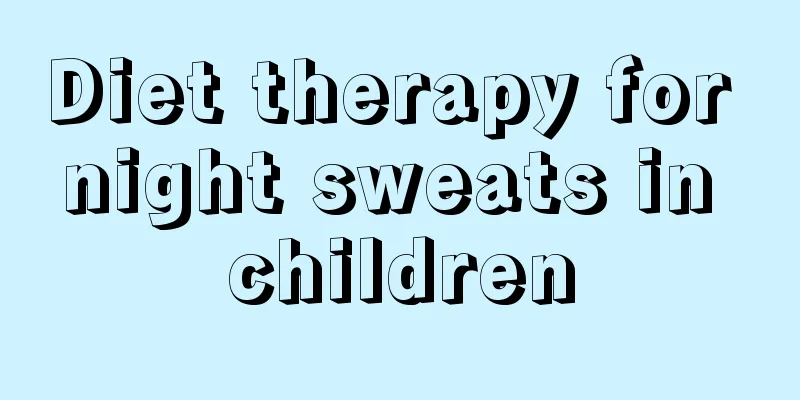What to do if a premature baby has a fever

|
A premature baby is a child who comes into this world before full term. Compared with full-term babies, premature babies have weaker resistance, so fever is more common. There are many reasons why premature babies have fever. Before treating the fever, parents must first understand what causes the fever so that they can better provide care and promote the baby's recovery. 1. Causes of fever in newborns Newborns, especially premature infants, are very sensitive to infection and the infection is often severe, often leading to fever, pneumonia or sepsis. This is determined by the anatomical, physiological and immune characteristics of newborns. 1. The newborn's defense function is insufficient and the barrier function is imperfect. The umbilical cord has not healed in the early days after birth. The skin and mucous membranes are delicate and easily damaged, becoming a portal for bacterial invasion. The newborn's immune function is low, so it is easy to cause fever. 2. The phagocytic ability of polynuclear leukocytes in newborns is poor, and their bactericidal effect on bacteria is also lower than that of adults. 3. There are many invasion routes for systemic bacterial infection in newborns, and the causes of infection are more complicated. Infection can occur in utero, during delivery, and after delivery. 2. How to distinguish the factors causing the newborn's fever If a newborn baby has a fever, parents should conduct a preliminary assessment of the baby's fever to distinguish whether the fever is caused by environmental factors or disease factors. 1. Environmental factors: Environmental factors cause fever in newborn babies. The most common reason is excessive warmth preservation: such as too many clothes and too many blankets. When the indoor temperature is close to 30℃, if the mother does not have enough breast milk, the baby's milk intake will decrease, which will cause dehydration in the newborn and lead to fever. Fever caused by environmental factors may cause the baby to show symptoms such as irritability, crying, flushed skin all over the body, hot hands and feet, and less urine. Parents do not need to panic if their children suffer from fever caused by this situation. 2. Disease factors: If a newborn baby has a fever accompanied by slow reaction, pale complexion, loss of appetite, and cold hands and feet, this is a fever caused by disease factors. When encountering such a situation, parents should respond rationally and calmly. 3. What to do if your newborn has a fever 1. Fever caused by environmental factors: Appropriately lower the ambient temperature (the suitable room temperature for newborn babies is 22-25℃), loosen the quilt or add more water, and the baby's body temperature can return to normal. 2. Fever caused by disease factors: It is best for parents to send the baby to the hospital for examination in time. During transfer, the baby does not need to be wrapped too tightly and can use a cold water bag as a pillow on the head. When the body temperature exceeds 39℃, you can first give a warm water bath or warm water sponge bath at home. The water temperature should be 33℃-35℃, and the sponge bathing areas should be the forehead, limbs, groin and armpits. Avoid using alcohol for bathing to prevent the body temperature from dropping sharply, even below 35℃, which will cause adverse effects. |
<<: What to do if premature babies have high jaundice
>>: Early symptoms of thyroid disease in children
Recommend
What medicine should babies take for coughing yellow phlegm
In people's daily lives, many parents will fi...
What are the nutritious porridges for babies to strengthen their spleen and stomach?
In life, many babies are taking care of their spl...
Why do children's palms sweat?
Although sweaty palms in children are very common...
What should I do if my three-month-old baby has diarrhea?
Many babies will have diarrhea symptoms. This is ...
How to treat adenoid hyperplasia in children
Children are the flowers of the motherland and th...
Key points for the care of premature babies: these points must be paid attention to
Compared with full-term babies, the care of prema...
Children's toenails are indented
Children's sunken toenails are a pathological...
Treatment for excessive tearing and mucus in babies
Babies' tears and eye mucus look very scary. ...
My 9 month old baby can't crawl
For parents with babies, the baby’s growth condit...
Prevention and care of bloating in infants
Young children's bodies have relatively poor ...
Baby viral cold fever
Viral colds are more common in winter. The dry en...
What is the best time to correct children's tooth deformity?
If a child has tooth deformities, it is important...
How many times a day should a seven-month-old baby eat complementary food to be healthy
Parents pay more attention to the nutritional hea...
How to deal with children's habitual dislocation in an emergency
The harm of habitual dislocation in children is r...
How old is the baby's neck when it can stand up?
We all know that the baby's neck is particula...









